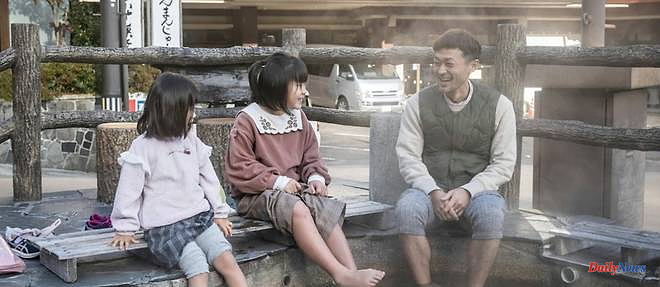With its hundred active volcanoes, Japan has the third largest geothermal resources in the world. But their energy exploitation is very low, due to major opponents: the owners of the "onsen", the hot water baths ubiquitous in the archipelago.
Nestled in the hollow of green mountains along a winding river near the city of Fukushima (northeast), the modest hot spring resort of Tsuchiyu-Onsen is a rather exceptional case in Japan.
Very damaged by the terrible earthquake of 2011 in the region, which also caused a fatal tsunami on the coast and the nuclear accident of Fukushima, this village of barely 300 inhabitants decided to bet on geothermal energy to recover .
"People here have always known that hot springs could be used for something other than baths, but they didn't know how to do it," Takayuki Kato, president of Genki Up Tsuchiyu, told AFP. company of the municipality managing its activities in renewable energies.
Everything changed after 2011. Thanks in particular to public funds for its reconstruction, Tsuchiyu-onsen was able to acquire a small geothermal power plant in 2015, built upstream from the village, above a pre-existing hot water well. and conveniently accessible.
"Miraculous" conditions, says Mr. Kato. Another prodigy according to him, the plant "has not changed the quality or quantity of water" for onsen, the main fears of hoteliers vis-à-vis geothermal energy in Japan.
Before the pandemic, the village's geothermal power plant attracted around 2,500 visitors a year, including onsen professionals from all over the archipelago intrigued by its success. But "very few have succeeded" in imitating it, as the alignment of the planets was exceptional at Tsuchiyu-onsen, notes Mr. Kato.
In its 2021/22 annual budget year (ending March 31), Japan produced only 0.3% of its electricity with geothermal energy and the government's 2030 target remains very modest: 1%.
A paradoxical situation given that the potential national resources in this area, the largest in the world after the United States and Indonesia, are estimated at 23 gigawatts - the equivalent of about twenty nuclear reactors - and that Japan is suffering of its great dependence on energy imports.
The main obstacle comes from the onsen, a sector "so powerful in Japan", explains Kasumi Yasukawa, a manager of the geothermal division of the Japanese public agency Jogmec, which specializes in the country's energy security.
These pillars of tourism in Japan "sometimes even refuse to discuss" the possibility of a geothermal project in their neighborhood, laments Ms. Yasukawa.
These projects also involve significant initial costs, a lot of initial uncertainty and lengthy administrative procedures.
However, some restrictions have been lifted in recent years by the government, which now allows geothermal potential to be explored in national parks, where 80% of these resources reside.
"To be honest, if possible, we would like the dynamic to develop geothermal energy to be stopped" in Japan, Yoshiyasu Sato, vice-president of the Japanese onsen association, told AFP.
He refuses to consider it a "renewable energy", citing examples of geothermal power plants in the country whose production capacity has decreased over time.
In addition, the hot springs supplying the onsen are fragile, their flow and their temperatures can thus drop in the event of overexploitation, he underlines.
"It seems that the fears of the onsen owners are based only on rumors," said Ms. Yasukawa. If geothermal projects exploit deep underground water reservoirs (aquifers), there is "no interference" with the onsen, whose water comes from separate reservoirs, close to the surface, she assures.
As for the decline in the production of certain old geothermal power stations in the country, it stems from the fact that their promoters had "overestimated" the energy potential, for lack of sufficient scientific knowledge at the time on deep aquifers, according to Ms. Yasukawa.
The public agency Jogmec and other Japanese supporters of geothermal energy also hope to change mentalities by promoting its positive benefits for local communities.
Thanks to the sale of the electricity generated by its geothermal power plant, Tsuchiyu-onsen offers free access to the local bus for children and seniors, supports its artisans and renovates disused buildings.
And the surplus hot water from the plant has created a new tourist attraction: a small freshwater shrimp farm, which can be fished before being grilled.
But these arguments do not weigh heavily with the onsen. If the promoters of geothermal energy "had new scientific methods of drilling that would remove our concerns, that would be very good. But they don't have them", tackles Mr. Sato.
14/03/2023 09:37:58 - Tsuchiyu-onsenmachi (Japanese) (AFP)












